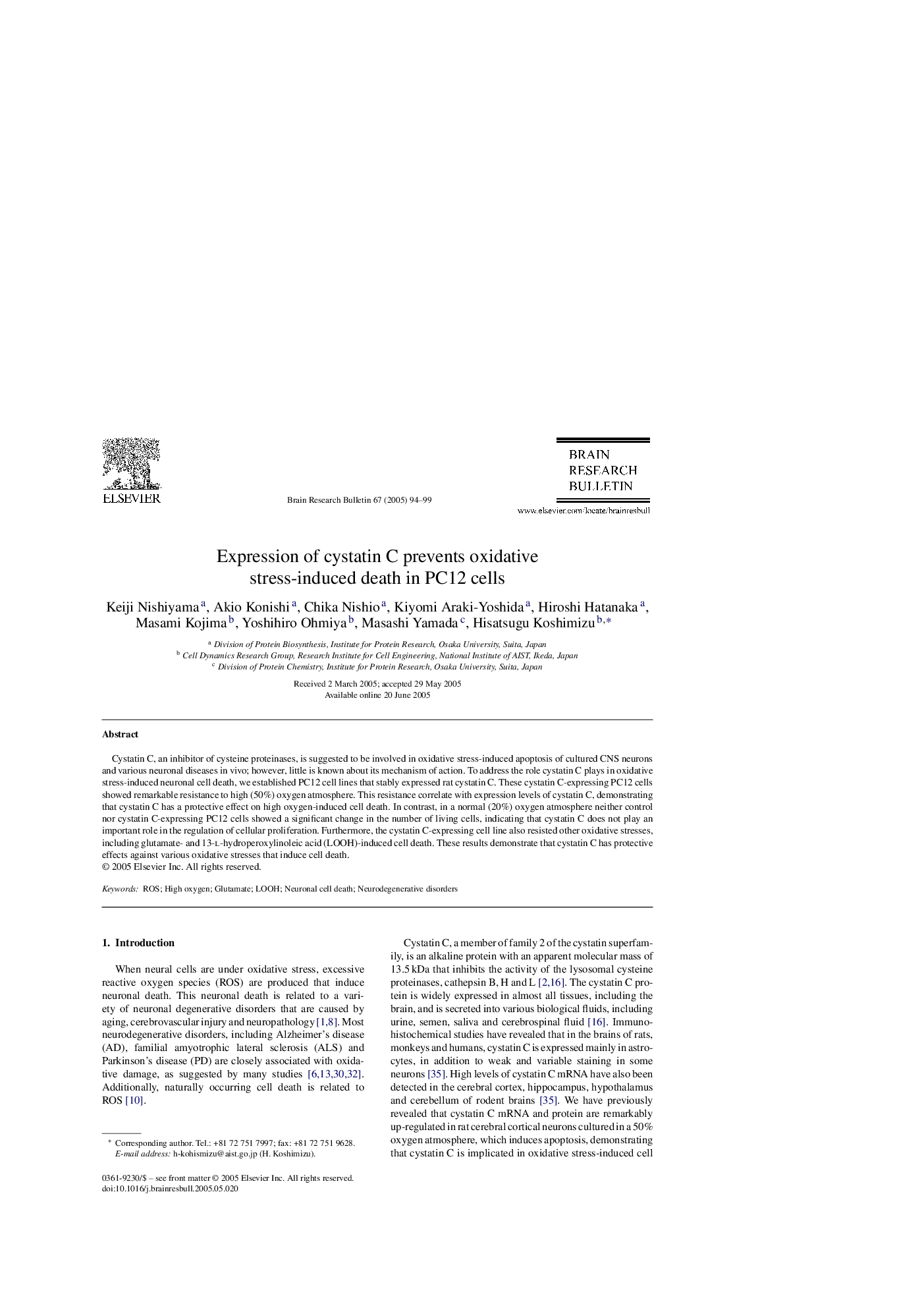| Article ID | Journal | Published Year | Pages | File Type |
|---|---|---|---|---|
| 9409374 | Brain Research Bulletin | 2005 | 6 Pages |
Abstract
Cystatin C, an inhibitor of cysteine proteinases, is suggested to be involved in oxidative stress-induced apoptosis of cultured CNS neurons and various neuronal diseases in vivo; however, little is known about its mechanism of action. To address the role cystatin C plays in oxidative stress-induced neuronal cell death, we established PC12 cell lines that stably expressed rat cystatin C. These cystatin C-expressing PC12 cells showed remarkable resistance to high (50%) oxygen atmosphere. This resistance correlate with expression levels of cystatin C, demonstrating that cystatin C has a protective effect on high oxygen-induced cell death. In contrast, in a normal (20%) oxygen atmosphere neither control nor cystatin C-expressing PC12 cells showed a significant change in the number of living cells, indicating that cystatin C does not play an important role in the regulation of cellular proliferation. Furthermore, the cystatin C-expressing cell line also resisted other oxidative stresses, including glutamate- and 13-l-hydroperoxylinoleic acid (LOOH)-induced cell death. These results demonstrate that cystatin C has protective effects against various oxidative stresses that induce cell death.
Related Topics
Life Sciences
Neuroscience
Cellular and Molecular Neuroscience
Authors
Keiji Nishiyama, Akio Konishi, Chika Nishio, Kiyomi Araki-Yoshida, Hiroshi Hatanaka, Masami Kojima, Yoshihiro Ohmiya, Masashi Yamada, Hisatsugu Koshimizu,
